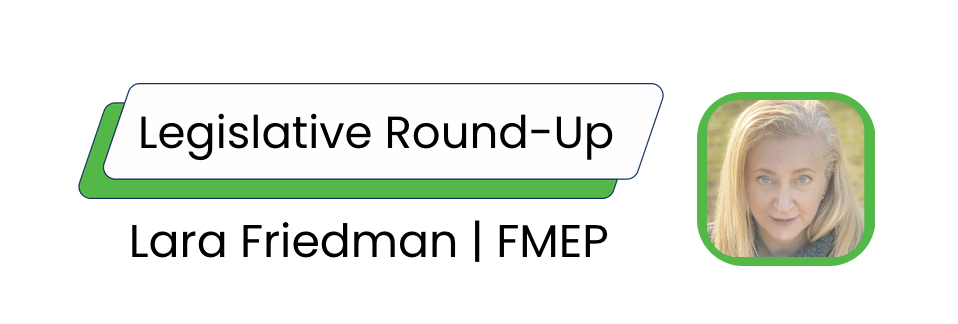 | | | | | |  | | | The current crisis in civil-security relations is Netanyahu’s worst transgression | | Q. Head of Shin Bet Ronen Bar has resigned after leveling unprecedented accusations against PM Netanyahu. No fewer than 21 former heads of services publicly back Bar. Why this crisis? What is it about? A. The Netanyahu-Bar clash is symptomatic of Netanyahu’s attempt, over a period of years, to politicize Israel’s security establishment and bend it to his ideological and personal-political goals. This has generated a crisis in civil-security relations that is at least as dangerous as Netanyahu’s ‘judicial revolution’ that preceded and in some ways catalyzed the events of October 7, 2023. Nor is the crisis confined to the Shin Bet domestic security service. Netanyahu and his minions have also lately attacked the heads of Mossad and the IDF. This is a crucial test of the viability of the governance system in Israel. One of the first signs of creeping fascism is when the security services are called upon to serve the regime rather than the wellbeing of the country and the public. Or when, alternatively (e.g., Watergate; January 6, 2021), the leader sets up his own security arm. To be sure, in the past there have been problematic relations between the prime minister and/or defense minister (on occasion the same person, e.g., Ben Gurion, Rabin, Barak) and security chiefs. But they never became full-fledged public crises and never threatened the viability of governance like the present crisis, for at least three reasons. | | | | Yossi Alpher is an independent security analyst. He is the former director of the Jaffee Center for Strategic Studies at Tel Aviv University, a former senior official with the Mossad, and a former IDF intelligence officer. Views and positions expressed here are those of the writer, and do not necessarily represent NJN's views and policy positions. | |  | 1. Bills, Resolutions
2. Letters
3. Hearings
4. Selected Members on the Record
5. Selected Media & Press releases/Statements New: 1. Bills & Resolutions Targeting Campus Free Speech via Conflating Criticism of Israel w/ Antisemitism (LEGISLATING THE IHRA CONFLATION OF CRITICISM OF ISRAEL & ANTISEMITISM) S. 558: Introduced 2/13/25 by Scott (R-SC) and 35 cosponsors (17 Republicans and 18 Democrats), “A bill to provide for the consideration of a definition of antisemitism set forth by the International Holocaust Remembrance Alliance for the enforcement of Federal antidiscrimination laws concerning education programs or activities, and for other purposes,” aka the “Antisemitism Awareness Act.” As a reminder, this bill seeks to codify into law, and enforce, the IHRA definition of antisemitism, including its “contemporary examples” that explicitly conflate criticism of Israel, Israeli policies/actions, and Zionism with antisemitism [with the targeting of such criticism the clear objective of the legislation]. Marked up in the Senate HELP Committee on 4/30/25, amended, and then DEAD IN THE WATER. For hearing details (and it was a doozy of a hearing) see Section 3, below. (WEAPONIZING THE IHRA DEFINITION ON US CAMPUSES) S. 3580: Introduced 1/11/24 by Cassidy (R-LA) and Fetterman (D-CA), the “Protecting Students on Campus Act of 2024.” As a reminder, this bill seeks to encourage and make it easier for students to file complaints regarding alleged antisemitism on campus — an initiative that, when coupled with S. 558 (above), would quite literally encourage, enable, and arguably require the wholesale suppression and punishment of virtually all free speech/protest on campus related to Israel or Zionism. Marked up in the Senate HELP Committee on 4/30/25, and then seemingly DEAD IN THE WATER along with S. 558. For hearing details (and it was a doozy of a hearing) see Section 3, below. | | | | | | | | Lara Friedman is the President of the Foundation for Middle East Peace (FMEP). With more than 25 years working in the Middle East foreign policy arena, Lara is a leading authority on U.S. foreign policy in the Middle East, with particular expertise on the Israeli-Arab conflict, Israeli settlements, Jerusalem, and the role of the U.S. Congress. Views and positions expressed here are those of the writer, and do not necessarily represent NJN's views and policy positions. | | | | | | | | | | New Jewish Narrative 1320 19th St, N.W. Suite 400 | Washington, District of Columbia 20036-1635
6176862265 | [email protected] | | | | | | | | | |